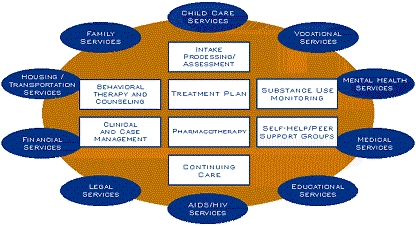A Comprehensive Guide to Substance Abuse Rehabilitation
Substance Abuse rehabilitation, usually referred to as rehabilitation, is a structured process made to assist people conquer dependancy on drugs, alcohol, or various other habit forming substances. It is not simply concerning detoxification-- it is a trip of psychological, emotional, and physical improvement. Rehabilitation centers offer secure settings where individuals can face the origin of their addiction, address mental triggers, and find out coping devices to sustain long-lasting soberness. This procedure is guided by qualified experts, consisting of specialists, medical doctors, and counselors who recognize the intricate nature of addiction as both a physical and behavioral condition.
Comprehending the Core important Abuse Recovery
At its core, rehabilitation is about reconstructing a person's life. Addiction commonly leaves deep marks-- stretched partnerships, economic distress, health issue, and mental illness. Through detailed rehabilitation programs, individuals are provided the devices to fix these elements progressively. Rehabilitation isn't simply regarding staying away from materials; it has to do with redeeming control and discovering one's feeling of self-regard. The programs stress structure, consistency, and personal accountability, which are key to lasting recuperation success. Every small turning point during rehab acts as a foundation for lasting sobriety.
Moreover, Substance Abuse rehabilitation is not a one-size-fits-all approach. It acknowledges that each person's addiction tale is unique-- what led to Substance Abuse abuse, exactly how it advanced, and how recuperation can be continual vary widely. Treatment facilities customize treatment plans based on specific evaluations, ensuring that every individual gets assistance that lines up with their psychological state, dependency history, and life scenarios. This customized strategy considerably improves healing outcomes and assists prevent relapse as soon as individuals rehabilitate right into daily life.
The Advantages of Inpatient Rehabilitation Programs
Inpatient rehabilitation, additionally referred to as property therapy, supplies among one of the most effective methods for those battling serious Substance Abuse dependency. Among its key benefits is the distraction-free and structured atmosphere. When an individual goes into an inpatient center, they are momentarily gotten rid of from exterior triggers-- such as friends that make use of materials, demanding offices, or family members conflicts-- that could prevent their healing. This isolation from negative influences allows patients to concentrate totally on recovery. Living within a monitored and supportive setup develops the security required to damage old routines and form healthier patterns of behavior.
An additional significant benefit of inpatient rehab is the 24/7 professional guidance offered to every client. Withdrawal symptoms from medicines or alcohol can be uncertain and, in many cases, lethal. Inpatient facilities have clinical teams that offer round-the-clock treatment, making sure clients are comfy and secure during detoxification. Past physical health and wellness, continuous guidance likewise offers psychological reassurance-- clients know that aid is readily available any time, which minimizes anxiety and constructs count on the recovery procedure. This prompt accessibility to psychological and clinical support dramatically improves the success price compared to outpatient look after serious addictions.
Inpatient rehab programs promote a strong sense of area and accountability. People communicate with others that share similar battles, join group treatment, and take part in activities that motivate synergy and empathy. This setting supports good understanding and minimizes feelings of isolation commonly connected with addiction. By attaching with peers and learning from their experiences, individuals establish social bonds that proceed to support them also after leaving the center. This sense of belonging, integrated with regular specialist assistance, makes inpatient rehab a very efficient structure for lasting recovery.
Inpatient Rehab Solutions Used
Inpatient recovery facilities supply a varied variety of solutions made to treat the body, mind, and spirit all at once. The initial stage normally involves medical cleansing, a process that safely eliminates compounds from the body while handling withdrawal signs. Detox is overseen by physician who might carry out medicine to reduce pain and protect against complications. People change to organized day-to-day programs that include health, therapy, and therapy activities as soon as detoxification is total. This integrated strategy makes certain that people not only conquer physical reliance but also address emotional and psychological facets of dependency.
Therapeutic solutions are at the heart of inpatient rehab. Facilities deal individual treatment sessions, where clients function one-on-one with certified specialists to discover the underlying sources of their dependency-- such as trauma, psychological health problems, or unsettled psychological pain. Cognitive-behavioral treatment (CBT), dialectical behavior modification (DBT), and motivational talking to are among one of the most common evidence-based methods utilized. In enhancement, team therapy sessions offer a supportive space for people to share experiences, gain point of view, and create interpersonal abilities. Family treatment is also often consisted of, helping to reconstruct trust and enhance interaction between individuals and their enjoyed ones.
Beyond standard therapy, numerous inpatient programs consist of entertainment and holistic services to advertise total wellness - find more info dual diagnosis rehab NJ. Yoga exercise, reflection, art therapy, and physical fitness programs aid decrease anxiety and educate mindfulness. Nutritional counseling guarantees that individuals rebuild physical health, as Substance Abuse typically diminishes the body's crucial nutrients. Some rehabilitation centers even provide occupation training and educational workshops to help clients get ready for reintegration right into society. These varied solutions are created to recover the entire individual-- not simply deal with dependency signs-- by cultivating durability, equilibrium, and purpose
Why You Must Consider Outpatient Programs
While inpatient rehabilitation supplies an immersive and extensive technique, outpatient programs offer an alternative that allows flexibility for people that can not dedicate to full-time domestic treatment. Outpatient rehabilitation makes it possible for people to obtain organized therapy and clinical assistance while preserving their daily duties-- such as household, school, or work care. For several people with moderate to moderate dependency, outpatient therapy uses the ideal balance between healing and everyday life. It permits clients to exercise the coping skills they find out in real-world atmospheres, strengthening their strength when faced with daily difficulties.
Another factor to consider outpatient programs is their cost-effectiveness. Inpatient treatment can be pricey due to holiday accommodation, meals, and 24-hour guidance, which might not be economically viable for everybody. Outpatient programs, nonetheless, normally cost much less due to the fact that they do not need household stays. Many centers offer sliding-scale payment alternatives or accept insurance coverage to make therapy available. For those that have actually already completed inpatient rehab, transitioning right into an outpatient program works as a beneficial continuum of treatment, aiding keep responsibility and stop relapse with ongoing support.
In addition, outpatient programs offer a high degree of personalization. People can choose in between partial a hospital stay programs (PHP), intensive outpatient programs (IOP), or conventional outpatient treatment, relying on their level of need. Each alternative supplies differing degrees of framework and time dedication. IOPs typically involve several therapy sessions per week, while standard outpatient care might consist of regular therapy brows through. This flexibility ensures that patients can receive professional help tailored to their recovery stage, making outpatient programs a practical and empowering selection for lasting recuperation upkeep.

Discovering Various Other Therapy Options in Substance Abuse Abuse Healing
Beyond outpatient and inpatient rehab, there are several other treatment choices offered for people looking for healing from Substance Abuse addiction (substance abuse treatment Morris County). Medication-assisted treatment (MAT) is one such approach, combining prescribed medications with behavior modification to manage withdrawal symptoms my website and decrease yearnings. Medicines like methadone, naltrexone, or buprenorphine are typically utilized in opioid addiction therapy, while acamprosate or disulfiram might sustain alcohol recuperation. Floor covering assists stabilize brain chemistry, permitting people to concentrate on therapy and lifestyle adjustments without the frustrating discomfort of withdrawal

Different therapies are additionally coming to be progressively popular in Substance Abuse Abuse therapy. These may include all natural practices like acupuncture, horse therapy, adventure-based therapy, and spiritual healing programs. While these approaches might not replace typical therapy, they can enhance it by enhancing emotional guideline, self-awareness, and confidence. The objective of exploring various treatment choices is to produce a healing plan that resonates with each individual's worths, ideas, and way of life. A customized mix of therapies frequently generates the most lasting outcomes, equipping people to live a fulfilling, substance-free life.
The Course to Long-Term Sobriety and Healing
Finishing rehabilitation-- whether inpatient or outpatient-- is only the start of a long-lasting healing trip. Aftercare programs play an essential function in maintaining sobriety and protecting against relapse. These programs might consist of ongoing therapy, assistance teams like Narcotics Anonymous or Alcoholics Anonymous, and sober living setups that offer continued framework. Uniformity and community are important; people that remain connected to recovery networks are most likely to sustain long-lasting development. Rehabilitation educates the necessary coping skills, however aftercare makes certain that those abilities are applied and strengthened in real-life circumstances.
Long-lasting recuperation additionally depends on lifestyle changes that support mental and physical wellness. Developing healthy and balanced routines-- such as normal workout, well balanced nourishment, and mindfulness techniques-- aids recover equilibrium to the mind and body. Participating in deliberate tasks like offering, going after pastimes, or reconnecting with liked ones can fill up the emotional void left by Substance Abuse use. Focusing and developing a positive mindset on future goals offer recouping individuals a renewed sense of identity and instructions. Soberness is not regarding deprival; it's about reclaiming life's splendor and possibilities.

With extensive rehab programs, people are offered the tools to repair these facets progressively. Inpatient rehabilitation programs promote a strong feeling of area and responsibility. While inpatient rehab offers an immersive and extensive method, outpatient programs provide an alternative that permits versatility for individuals that can not dedicate to full time property treatment. Outpatient rehabilitation allows clients to obtain structured therapy and clinical support while keeping their everyday obligations-- such as household, school, or job treatment. Beyond inpatient and outpatient rehabilitation, there are several various other treatment choices available for people seeking healing from Substance Abuse dependency.